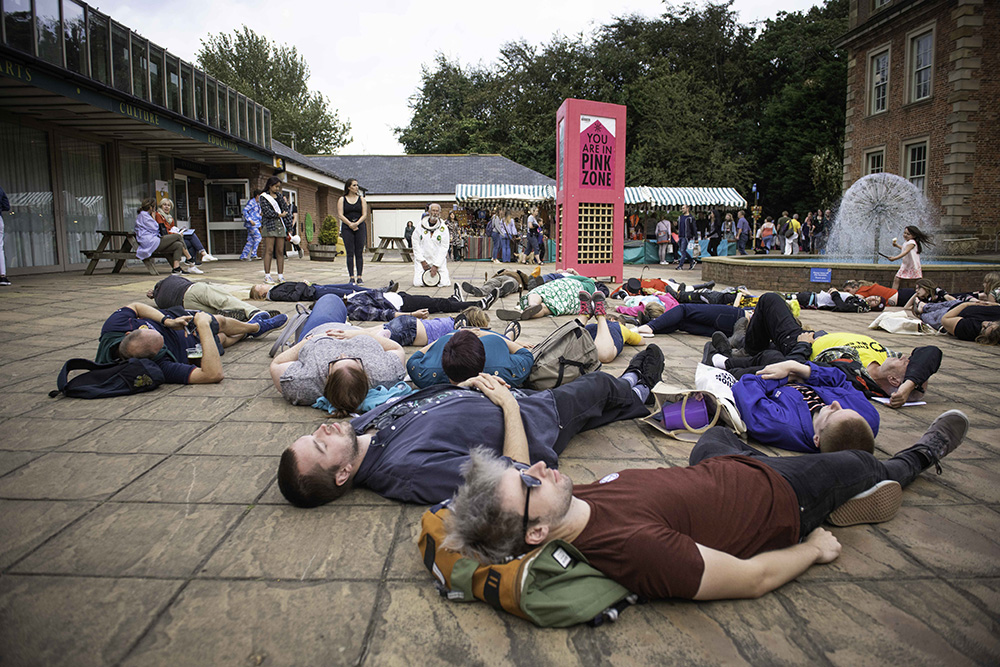[vc_row][vc_column][vc_row_inner][vc_column_inner width=”1/6″][/vc_column_inner][vc_column_inner width=”2/3″][mk_circle_image src=”https://www.festivalofthrift.co.uk/wp-content/uploads/2020/08/laura-waistell.jpg” image_diameter=”141″][mk_fancy_title size=”30″ force_font_size=”true” size_smallscreen=”20″ size_tablet=”20″ size_phone=”15″ font_weight=”bold” font_style=”italic” txt_transform=”none” letter_spacing=”1″ font_family=”none” align=”center” el_class=”blogtitle”]Laura Waistell, Student Research Assistant at Teesside University, says there are plenty of ways to create a sustainable future – in both your career and your day-to-day life[/mk_fancy_title][/vc_column_inner][vc_column_inner width=”1/6″][/vc_column_inner][/vc_row_inner][vc_column_text css=”.vc_custom_1598017533856{margin-bottom: 0px !important;}”]It is never too early to begin a career in the environmental sector. Many companies are becoming more environmentally conscious as our societies look more toward a sustainable future and as a result there are many new careers in the field. Whatever you are interested in there is likely to be something for you!
Because it is such a broad field, there are options for everyone; from practical jobs to academic careers and everything in between. They are all equally as important in creating a more sustainable future.
If practical work is something you enjoy, there are many conservation and wildlife charities across the country which are always in need of volunteers. These are excellent places to build your field skills and are also great for networking. There are also options for education in this field, both colleges and universities offer courses such as Countryside management which help to hone these skills.
If taking part in research is more your scene, university is a good place to start. Scientific research is always happening at these institutions; if you ask and show interest you may be able to get involved. Some universities even offer placement programmes in which they employ students as research assistants.[/vc_column_text][mk_image src=”https://www.festivalofthrift.co.uk/wp-content/uploads/2020/08/photo-1.jpg” image_size=”large” desc=”Conservation projects are excellent places to build your field skills” align=”center” margin_bottom=”30″][vc_column_text css=”.vc_custom_1598440206013{margin-bottom: 0px !important;}”]
How I got involved in research
During my time studying Environmental Science BSc at Teesside University I got involved with the ‘Students as Researchers Scheme’ in which students can take part in real research going on at the university.
I was lucky enough to be a successful applicant in my first year of study and got involved in a project relating the age of freshwater habitats to biodiversity. This research liked with a larger study on the factors which have an impact on freshwater species diversity and was passed on to organisations which work to conserve related wildlife.
I was also successful in my second year, moving on to a project looking into the global change factors which affect flowering, pollen production and allergenicity as well as the potential human health effects. This project is still ongoing as part of an additional summer placement scheme.
Working on these research projects has allowed me to gain some fantastic experience in the field of research, which I would like to continue. I have gained skills in data analysis, literature review, presentation, networking and much more.
Getting involved in research as a university student is an incredibly valuable experience and I would encourage anyone interested to do the same. Other universities offer similar schemes, but if yours doesn’t, don’t worry. There may still be ways for you to get involved in research. Find out by talking to your lecturers about what research may be going on at your uni, you may be surprised!
[/vc_column_text][mk_image src=”https://www.festivalofthrift.co.uk/wp-content/uploads/2020/08/photo-2.jpg” image_size=”large” link=”https://edition.cnn.com/2016/10/17/world/gallery/eco-killer-gallery/index.html” desc=”Laura has been involved in a project relating the age of freshwater habitats to biodiversity” align=”center” margin_bottom=”30″][vc_column_text css=”.vc_custom_1598018972082{margin-bottom: 0px !important;}”]Other ways to get involved
Even if an environment related career isn’t for you, you can still make a difference in your day-to-day life such as:
• Choosing food products with less plastic packaging
• Buying local
• Eating ‘in season’ (meaning buying fruits and vegetables which are grown in the UK in season and not all year round shipped from overseas)
• Using toiletries and cleaning products which are more environmentally friendly
• Wearing sustainable clothing such as vintage and second-hand items – these are usually of a higher quality and will last much longer too
• Travelling by public transport or carpooling and even cycling if you are able to
• Reducing meat consumption – provided the replacements are environmentally conscious and do not compromise your health
With increasing global uncertainty, we must all work together to be more environmentally conscious. By making small changes we can reduce the burden we place on the planet and in doing so allow future generations to enjoy it and the same luxuries we do.[/vc_column_text][mk_image src=”https://www.festivalofthrift.co.uk/wp-content/uploads/2020/08/photo-3.jpg” image_size=”full” desc=”Laura has gained some fantastic experience in the field of research”][vc_column_text css=”.vc_custom_1598440615173{margin-bottom: 0px !important;}”]Join a live discussion as part of Thriftfest Upcycled
Laura is part of the Thrift Youth Panel and will be taking part in a live interactive panel discussion as part of this year’s digital edition of Thriftfest Upcycled.
Join her and fellow panellists on Saturday 12 September as they explore the range of opportunities for young people to engage in sustainability, take action and instigate change. From protest to politics to green careers – log on and join the conversation!
This talk will welcome speakers from Extinction Rebellion (one of their die-ins at the 2019 Festival of Thrift is pictured at the top), Teesside University, METIS and more.
To register visit https://www.festivalofthrift.co.uk/talks[/vc_column_text][/vc_column][/vc_row]


